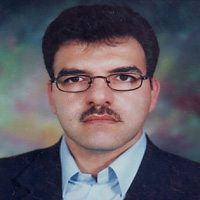Comparison of the Relation of Partial and General Intellect from Rumi's Viewpoint to Primary and Secondary reflection from Gabriel Marcel's Viewpoint
Attention to the types and levels of intellect as different tools of cognition in philosophy and mysticism has been proposed for centuries. In the meantime, Rumi has emphasized the position and importance of intellect and the distinction of its types. Carefully in Masnavi it can be seen that the partial and general intellect bears a striking resemblance to the primary and secondary reflection proposed by the French philosopher Gabriel Marcel. The present study has been done in a descriptive-comparative manner and the And the results show that Rumi and Marcel, through two different perspectives, the first mystical and the second philosophical, have realized that transcendental truths can be obtained through experience and intuition, and these issues are not solvable issues; They have to be confronted and they are ultimately astonishing. There are also two types of divisions for knowledge, moral effects and results, which of course Marcel's goal is the same moral and spiritual functions, but for Rumi the goal is to reach and join the truth, and moral action in the path of knowledge to the transcendent is a means to achieve this truth. Is. In these divisions, Rumi and Marcel criticize philosophers for their use of material means to understand the transcendental; However, regarding the transcendental affairs, Rumi believes that in the path of the path, one should resort to an old man to reach knowledge; But such a problem is not found in the thought of Marcel, the philosopher.
-
The Characteristics of Mystical Wayfaring in Abū ʿAbdullāh al-Niffarī’s al-Mawāqif and al-Mukhāṭabāt
Reza Abbasi*, Azim Hamzeeian, Qhodratollah Khayatian
Pajooheshname Erfan, -
A Review of Nosrat Amin’s Mystical Self-Knowledge in Makhzan al-‘Irfan Interpretation
Seyed Hamidreza Raoof, Ghodratollah Khayatian *,
The Mirror of Knowledge Journal,



